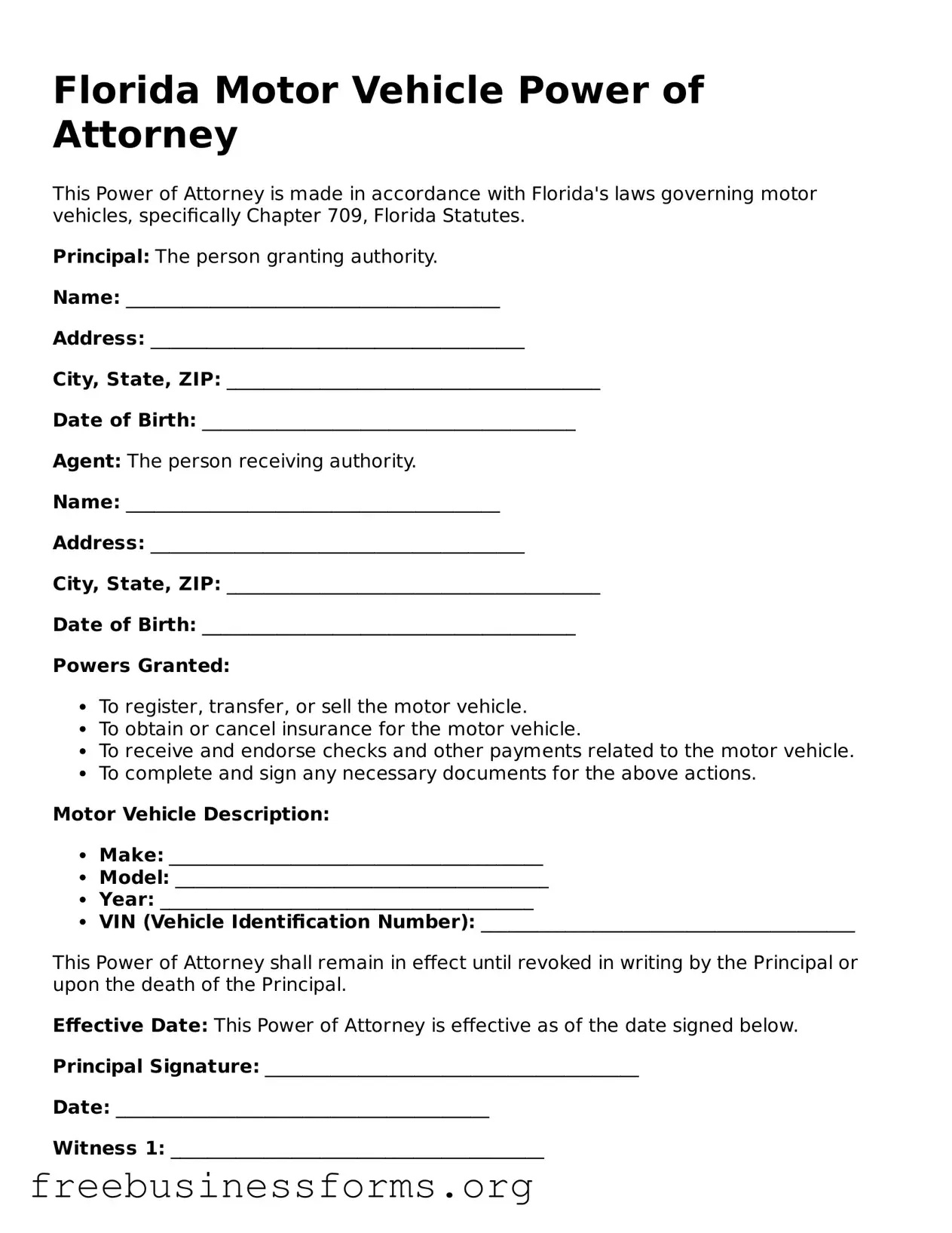Blank Motor Vehicle Power of Attorney Template for Florida
The Florida Motor Vehicle Power of Attorney form is a legal document that allows an individual to designate another person to act on their behalf in matters related to motor vehicle transactions. This can include tasks such as registering a vehicle, transferring ownership, or obtaining title documents. Understanding this form is essential for anyone needing to delegate authority regarding their motor vehicle in Florida.
Open Form Here

Blank Motor Vehicle Power of Attorney Template for Florida
Open Form Here

Open Form Here
or
↓ PDF File
Quickly complete this form online
Complete your Motor Vehicle Power of Attorney online quickly — edit, save, download.